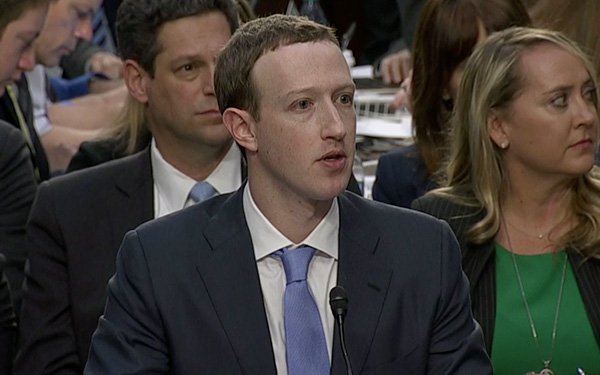Facebook Avoids Governmental Oversight
- by Gavin O'Malley @mp_gavin, April 12, 2018

Despite lots of finger-wagging, Facebook seems to have avoided serious short-term damage after two days in the Congressional spotlight.
From potential regulation to accusations of political bias, a contrite Mark Zuckerberg faced tough questions from lawmakers, but avoided making any major concessions.
“Facebook avoided much damage, which is probably the best outcome that the company might have hoped for from this event,” Pivotal Research analyst Brian Wieser suggests in a note to clients.
In large part, Wieser attributed the relative win to “a lack of a comprehensive understanding of the Cambridge Analytica issue and related problems” among members of the Senate Judiciary and Commerce committees and the House Energy and Commerce Committee.
Other analysts agreed with this assessment.
“Fully half the senators [didn’t] seem to understand how the internet and digital advertising work,” Forrester Research’s Fatemeh Khatibloo writes in a new note.
As a result, Zuckerberg was able to dodge questions regarding Facebook’s data-collection policies, its virtual dominance of the online ad business and other big issues.
“Zuckerberg spent an awful lot of time evading questions about how Facebook has cornered the digital advertising market so effectively,” Khatibloo noted.
Research suggests the bad press isn’t cutting into Facebook’s bottom line.
Indeed, new findings show that Facebook’s ad spend through 4C's media planning and buying platform increased 62%, year-over-year -- and specifically week-over-week during the weeks of March 17 (7%) and March 24 (15%).
“We’re seeing continued strength for Facebook advertising, despite the negative headlines,” Aaron Goldman, CMO at 4C Insights, comments in a new report.
Lon- term, however, Facebook may be heading for trouble. “There are ongoing regulatory headwinds ahead,” Wieser predicts.
Congress is still planning to hold hearings devoted exclusively to Facebook’s Cambridge Analytica scandal.
That, and “the looming implementation of GDPR in Europe next month, suggest more negative regulatory news flow to come,” said Wieser.


